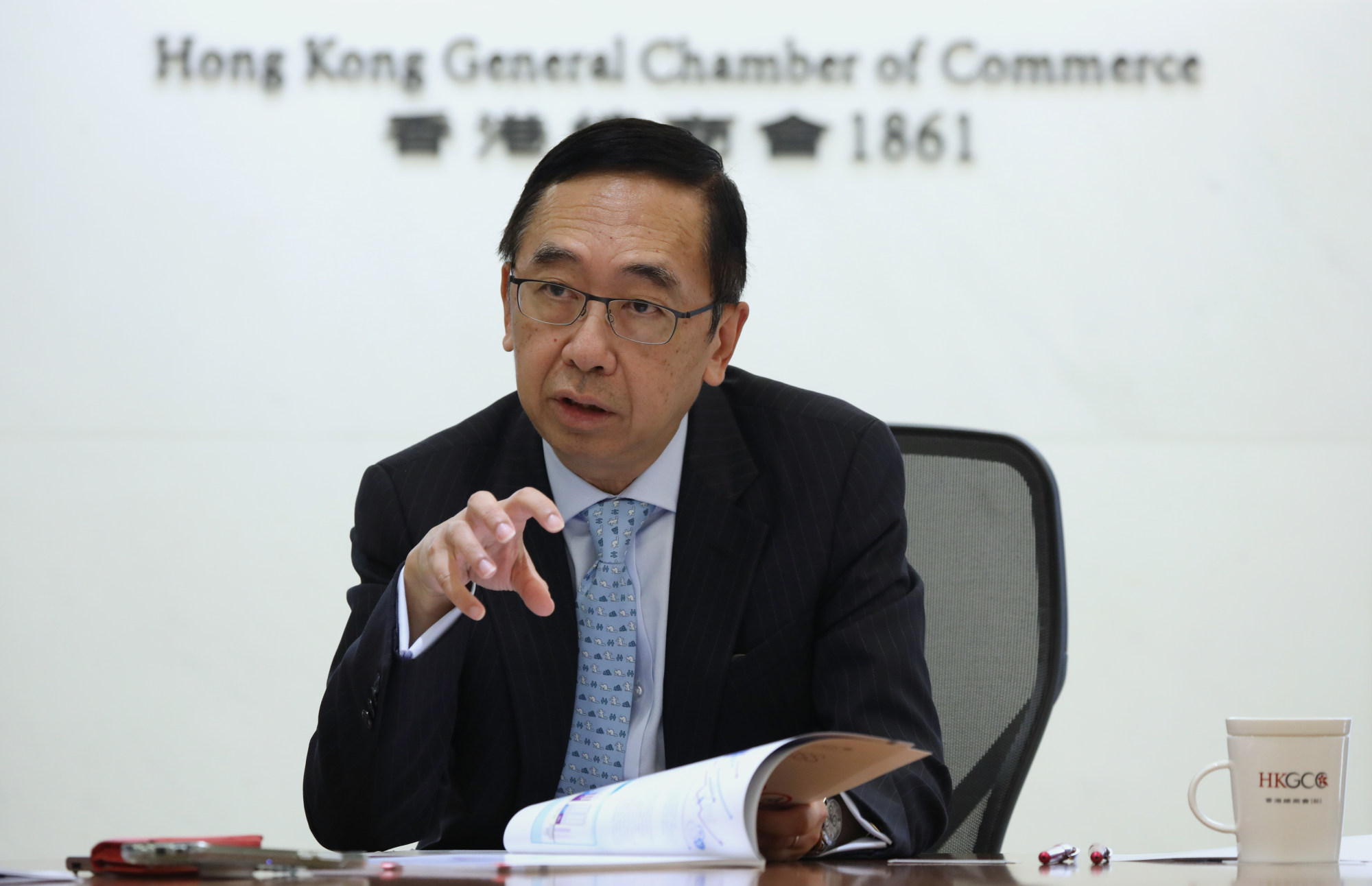[ad_1]
Companies in Hong Kong are struggling with an emigration wave that has pushed turnover rates above 20 per cent, with the loss being felt especially keenly in their middle ranks, one of the city’s largest business groups has said.
George Leung Siu-kay, CEO of the Hong Kong General Chamber of Commerce, on Sunday warned that increasing salaries was not a cure-all for the situation, as non-profit organisations would find it difficult to match offers being made in the private sector.

Leung told a radio programme that the outflow of workers, especially mid-level ones, had “severely crippled the operations” of locally based companies.
“As we talked to businesses, we realised that every company had a turnover rate of more than 20 per cent, including many financial institutions,” he said.
“[Employees] at the middle levels are the most productive and could become the backbone of future management … Senior management is taking over their jobs, and I learned that managers are now having to operate forklifts themselves.”
Government figures from last month showed Hong Kong’s workforce in 2022 shrank by 94,000 employees, or 2.4 per cent, from the 3,776,300 recorded the year before. Over the past four years, the city has lost a total of 220,500 workers.
A poll released in March by human resources agency ManpowerGroup Greater China found 85 per cent of 510 employers surveyed reported difficulties in filling positions.
Alexa Chow Yee-ping, managing director of recruitment agency ACTS Consulting, said accounting, technology and engineering were among the professions hit hardest by the loss of experienced employees.
Middle-level roles had seen a higher turnover in recent years because the positions were most often held by Hongkongers in their 30s, some of whom take a strong interest in politics and might be more inclined to depart the city given the recent changes.
“People are still leaving. Our clients are still engaging us for hiring, saying ‘my colleague has quit for emigration reasons’,” Chow said, although she added she expected the emigration wave to slow.
Official statistics show Hong Kong had a net outflow of 60,000 residents in 2022, as the population dipped 0.9 per cent to 7,333,200 by the end of last year.
Chow also noted the latest pay trend survey commissioned by the government indicated the private sector had been increasing wages in a bid to retain middle-ranking staff.
Based on data collected from 108 private companies covering 136,971 employees, the survey showed that middle-ranking employees received an average pay rise of 5.68 per cent, compared with 5.66 per cent for junior staff and 3.91 per cent for high-earners.
As Chinese firms move supply chains out of China, India and Southeast Asia benefit
As Chinese firms move supply chains out of China, India and Southeast Asia benefit
Leung, however, warned that boosting wages to ease the shortage during the current period of low unemployment would create “vicious competition”, with NGOs serving the underprivileged being among those that would struggle to keep up with commercial entities.
He argued that importing talent would support businesses in Hong Kong and help the city navigate changes brought about by Western countries seeking to reduce their supply chain reliance on the mainland.
The business chamber CEO urged authorities to streamline the application process for the city’s existing talent schemes, adding that competing economies were taking a more “aggressive” and “flexible” stance by offering tax breaks and other financial incentives to candidates.
Expanded Hong Kong talent list reveals professions up for visa fast track
Expanded Hong Kong talent list reveals professions up for visa fast track
The Post had found that 95 per cent of approved applications under the scheme, as of February, were candidates from the mainland.
“The problem is that the whole world is vying for talent alongside Hong Kong. Even with such a variety of labour import schemes, other countries are also competing,” Leung said.
He added that education authorities should set up more appealing school curricula for the families of mainland talent interested in relocating to Hong Kong.
As Hong Kong looks overseas, local talent needs to be nurtured
As Hong Kong looks overseas, local talent needs to be nurtured
“Sufficient talent supply is the key to sustainable social and economic development,” he said. “As Hong Kong drives an economic transformation towards high-quality growth, there is definitely more room for development in vocational education and training.”
[ad_2]
Source link
